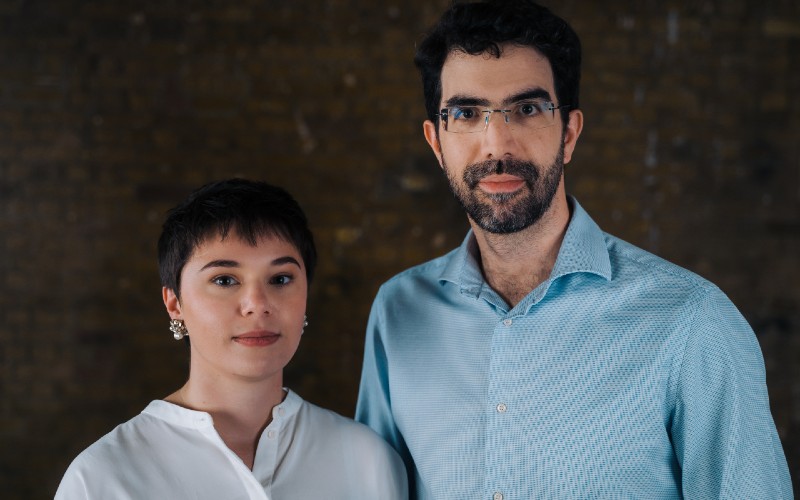Whilst mental health problems have been present for a very long time, the attention and focus it has started to get has increased since the start of the pandemic. A strong wave of support for those struggling with mental health during lockdown sparked a movement urging people to pay more attention to how they feel.
Thymia is one of the first companies to revolutionise the way that these illnesses can be diagnosed, allowing for a more comprehensive and longitudinal overview of patients and their problems. It brings together the ease and brilliance of technology to a more accurate, better quality healthcare service.
How it works
Co-founders Emilia Molimpakis and Stefano Goria have created a system where patients can not only be diagnosed from the comfort of their homes, but can also undergo treatment in the same place. The company seeks to use video games that are based on neuropsychology to analyse facial expressions, tone of voice and speech patterns.
The procedure starts with a baseline assessment, where Thymia’s platform collects data on its patients through a selection of video games they take part in. These video games are centred around neuropsychology protocols to better interpret any cognitive patterns associated with mental health issues. Once the data has been gathered, the patient then must visit the clinic in person for a consultation with the doctor, in which the clinician decides on a diagnosis and intervention plan. Luckily, the actual treatment can be undertaken from home, and Thymia can monitor the progress of their patients just by allowing them to log in to the platform between sessions. The main point of diagnosis is in the analysis of facial features and tone of voice, which could potentially point to signs of illnesses like depression.
There has also been, in recent years, a perception that certain video games can have very real impacts on human behaviour. While several studies point to the negative effects of gaming, there are few that say video games can also be useful in improving mental health.
The purpose
Thymia’s founders believe that there are multiple problems with the current system to diagnose mental health problems; they criticise the questionnaires that are conventionally used by doctors to be ‘subjective’ and ‘prone to bias’, with no standard procedure to monitor patients outside the walls of a medical facility.
Of course, virtual care and treatment inevitably comes with concerns not only about the certification of an organisation but also its privacy policy. Thymia is, however, fully compliant with the General Data Protection Regulations, and a cyber-security certification that allows them to work with NHS patients.
What gives Thymia a unique selling point is that their system allows for a more natural observation of patients as they are in a comfortable space of their own whilst undergoing treatment. It also facilitates more breadth for a case, where the clinicians can check whether or not their plan is successful over a longer period of time.
Thymia recently raised $1.1m seed funding in a round co-led by Kodori AG. In a statement, Kodori AG commented that ‘Thymia is perfectly placed and uniquely capable of becoming the gold-standard of objective mental health assessments, and we are excited to support Emilia and Stefano in their mission.’
Modern mental health
Given the lack of mental health focus as well as the transition into a society where ‘work from home’ is becoming the new normal, Thymia has cleverly spotted a gap in the market where mental healthcare can now be delivered at the touch of our fingertips. While we have been restricted in terms of movement and physical interaction, the concept that Molimpakis and Goria have created bridged the gap between accessibility to healthcare and lockdown restrictions.
UK Health Secretary Sajid Javid also pointed to the rising numbers for depression and other mental health related cases, highlighting the importance of innovative companies like Thymia and the scope of new healthcare in tackling an increasingly important societal problem. With 1 in 4 people in England experiencing some kind of mental health problem each year, Thymia could be the next model that revolutionises mental health care and treatment.
About the Author: Nandini Mehta
Nandini Mehta is a contributing Features Writer focusing on the development of technology and business practices around the world. Nandini has an in-depth knowledge of politics and international relations, and so writes pieces that utilise her interest for current affairs.
Recommended for you

Antidepressant Prescribing at Six-Year High
More people are taking antidepressants than ever. Is this a dark sign of the times or an indication that mental health stigma is changing?

Can AI be Used to Determine Cancer Recurrence?
When cancer patients go into remission, they often worry about it coming back. AI can now help identify those at risk of cancer recurrence.

Pegasus – Still a Threat to the UK?
The notorious Pegasus spyware has been misused to exploit vulnerabilities in devices, even those kept within the walls of Number 10.
Trending

Drug Decriminalisation: Could the UK Follow Portugal?
Portugal’s drug decriminalisation has reduced drug deaths and made people feel safe seeking support. Would the UK ever follow suit?

Calling All Unvaccinated UK Adults
With Covid cases rising, the NHS is urging the 3 million UK adults who remain unvaccinated to come forward.




